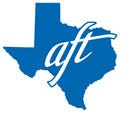Better wages needed for support staff; the big news in the HB 3; and making schools safer
by Rob D’Amico, Texas AFT Communications Director
(Follow on Twitter @damicoaustin and @TexasAFT)
‘What about us?’ highlights support staff’s need for a pay raise
Great to see the Dallas Morning News bring up the contributions of school support professionals with Saturday’s, “In Texas lawmakers have promised teacher pay raises, leaving school staff to ask, ‘What about us?’”
While most teachers are well aware of the low wages paid to other staff members, we’re sure most of the public probably is not. As the piece notes:
Teachers’ aides, counselors, nurses, bus drivers, cafeteria workers and maintenance staff often earn the lowest wages in schools and have less opportunity to boost their salaries because they can’t participate in local merit pay programs.
The average base salary for one of Texas’ 359,000 teachers is $54,122, according to the Texas Education Agency. But many positions in school districts pay staff less than $30,000 a year. For example, the average cafeteria worker earns $19,162. The average campus secretary earns $26,967. And the average bus driver earns $24,304.
The president of our local union in Dallas notes in the story that even though Dallas ISD has given small raises to support staff, it hasn’t been enough to keep pace with inflation and their health-care premiums.
“The emphasis is definitely on teachers that are in front of students, but education is a collaborative effort,” said Rena Honea, president of the Dallas-based Alliance American Federation of Teachers. “To not consider [support staff] is certainly an injustice to the work that they do.”
….“It’s certainly an appreciated gesture,” she said of Dallas ISD’s recent salary adjustments. “But it’s not enough. Not for the work that they do and for the time they put in. They’ve worked so long with no increases as insurance premiums have risen and the cost of living has risen, but their salaries have not.”
House bill stresses local input on any incentive plans for teachers
The big news this week was the changes made to House Bill 3 (the key school finance bill in the House that passed out of the Public Education Committee Tuesday that will provide $6 billion in new education funding) with deleted language that could have funded paying some teachers more for students’ standardized test scores — most likely the STAAR test. Still in the bill, which Texas AFT supports, is language that provides for teachers to receive additional compensation for working at low-performing campuses, and in shortage areas, for example.
The headlines in the Dallas Morning News, Texas Tribune, the Austin Chronicle and Austin American-Statesman all spoke to the House getting rid of pay tied to test scores. (And a Dallas Morning News editorial even lauded the new course as even better.) That was the goal all along for the crafters of this bill, to provide additional resources (in this case $140 million in HB 3) to go to increased compensation for these teachers to help where it is needed most. The pay-for-test-scores language was muddying the waters and we’re pleased that it was removed and instead replaced with language that requires input from parents, educators and the community at large for these compensation programs.
All our Texas AFT members and other educators from across the state who wrote and called legislators, and attended our rally at the Capitol, deserve a big thanks for this change — as do the House Public Education Committee members for recognizing that programs that incentivize teachers needed to be crafted locally without mandating anything related to the STAAR test.
After all this good news, we need to note where the real battle against misuse of the STAAR test for educator pay lies — at the local level, and possibly with the Texas Senate. Note this final paragraph in the Dallas Morning News article.
Despite the change to the House legislation, school districts can still make local decisions to implement merit pay programs, like Dallas ISD. And the Senate’s version of the school funding bill, which is still being written, will have provisions that outline a merit pay program, according to the bill’s sponsor, Sen. Larry Taylor, R-Friendswood.
Keeping our kids healthy and safe
A Dallas Morning News story about lead in school drinking water and the Houston Chronicle piece on funding for safety infrastructure are reminders that we also need to keep health and safety in the forefront of our discussions on school improvements.
As the story on lead notes:
Nearly two-thirds of the 500 North Texas-area schools whose water quality is readily available have lead contamination, said Bay Scoggin, director of the Texas Public Interest Research Group. Statewide, about 70 percent of all schools tested have shown lead, the group found.
Scoggin praised the Dallas school district for voluntarily testing their water regularly and taking action when results show lead levels above [the EPA standard of] 15 parts per billion. But he pointed out that the federal Environmental Protection Agency has stated that there’s no safe level of lead.
[Bryan Adams High School], for example, had results showing as much as 13 ppb at the school, Scoggin said.
Meanwhile, the Texas Senate wants to add $100 million in one-time funds for infrastructure improvements, like bullet-proof glass, to make schools safer.
The one-time funding, approved 31–0 on Wednesday, could be used by schools to improve doors at entry points, install video monitors and other elements in an effort to “harden” schools by increasing security features on campus. Other options include metal detectors, vehicle barriers, security systems, shooter-alarm systems, two-way radios, security fencing, bullet-resistant glass and door-locking systems.
